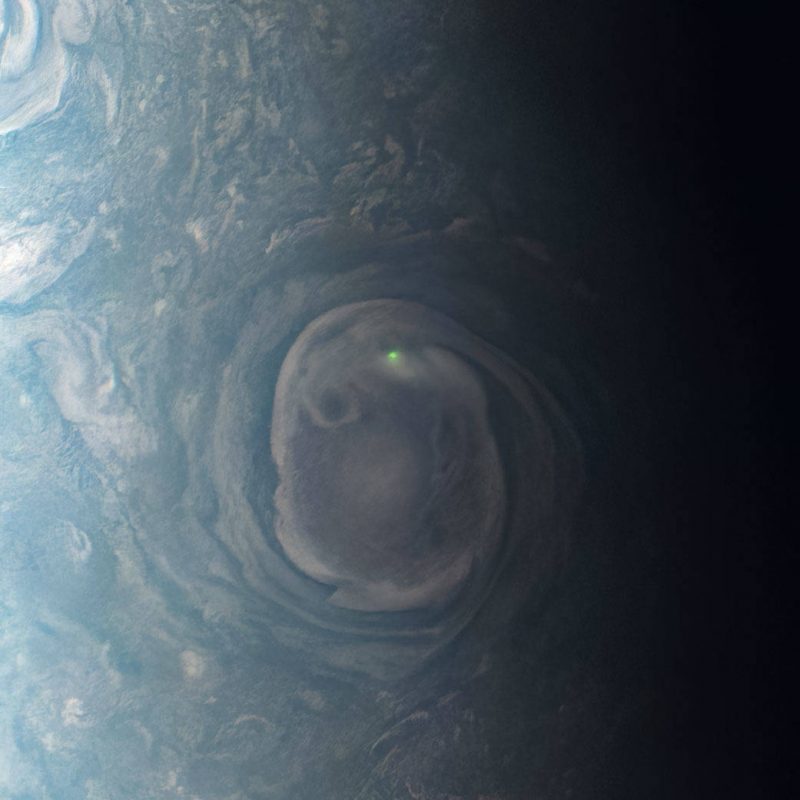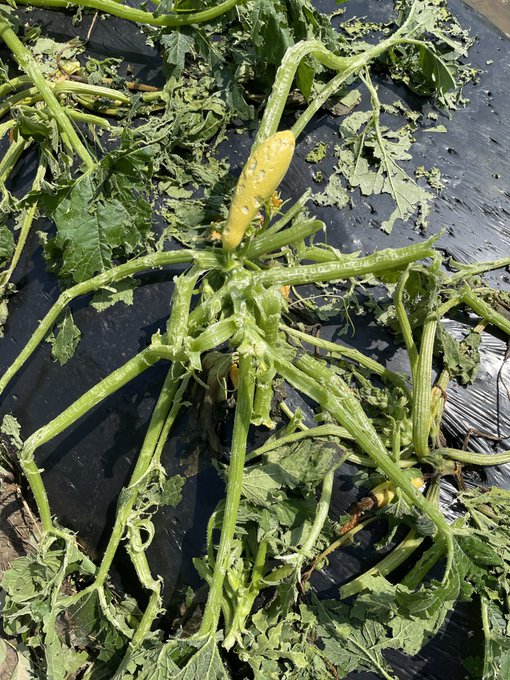Climate and Ag in the news
-

Last week I posted a story about hail damage in the Southeast from the week of severe weather that affected parts of the Southeast. Here is another story from Vegetable Growers News that details more of the damage that hit vegetable growers around the region. The map below from Eric Snodgrass of Nutrien’s newsletter shows…
-

I often get asked how the number of chill hours in Georgia is changing over time. Here is a great article written by Chunxian Chen from the Southeastern Fruit and Tree Nut Research Lab in Byron, GA, in Growing Produce that answers that question. The author shows that, as expected, the number of chill hours…
-

Meteorologists mostly study weather on the Earth, but there are planetary scientists who also study the atmosphere on other planets. In the past, this blog has posted pictures of a dust devil and cirrus clouds on Mars. Earlier this week, on June 15, 2023, NASA released this stunning image of a lightning bolt in Jupiter’s atmosphere. NASA’s Juno spacecraft…
-

One of the amazing things about the weather in the Southeast the past week or two is the amount of severe weather that we have seen in a month that usually does not have much. Especially notable has been the amount of large hail, which has caused severe damage to cotton, vegetable, and corn crops…
-

This year’s summer solstice occurs on Wednesday, June 21, 2023 in late morning. The solstice is the start of astronomical summer, although climatological summer starts June 1. You can read more at EarthSky through the link below.
Posted in: Climate and Ag in the news -

The latest monthly global climate summary was released by NOAA earlier this week. It shows that for the earth as a whole, May was the third warmest in records that date back to 1880. There was also a record-low amount of sea ice for May in the Antarctic, a big change from a few years…
-

The North Carolina State Climate Office posted a report on the recent occurrence of skies filled with smoke from the Canadian wildfires and the problems it caused for air quality in their region. You can read it at Rapid Reaction: Smoky Skies Create Unhealthy Air Quality – North Carolina State Climate Office (ncsu.edu).